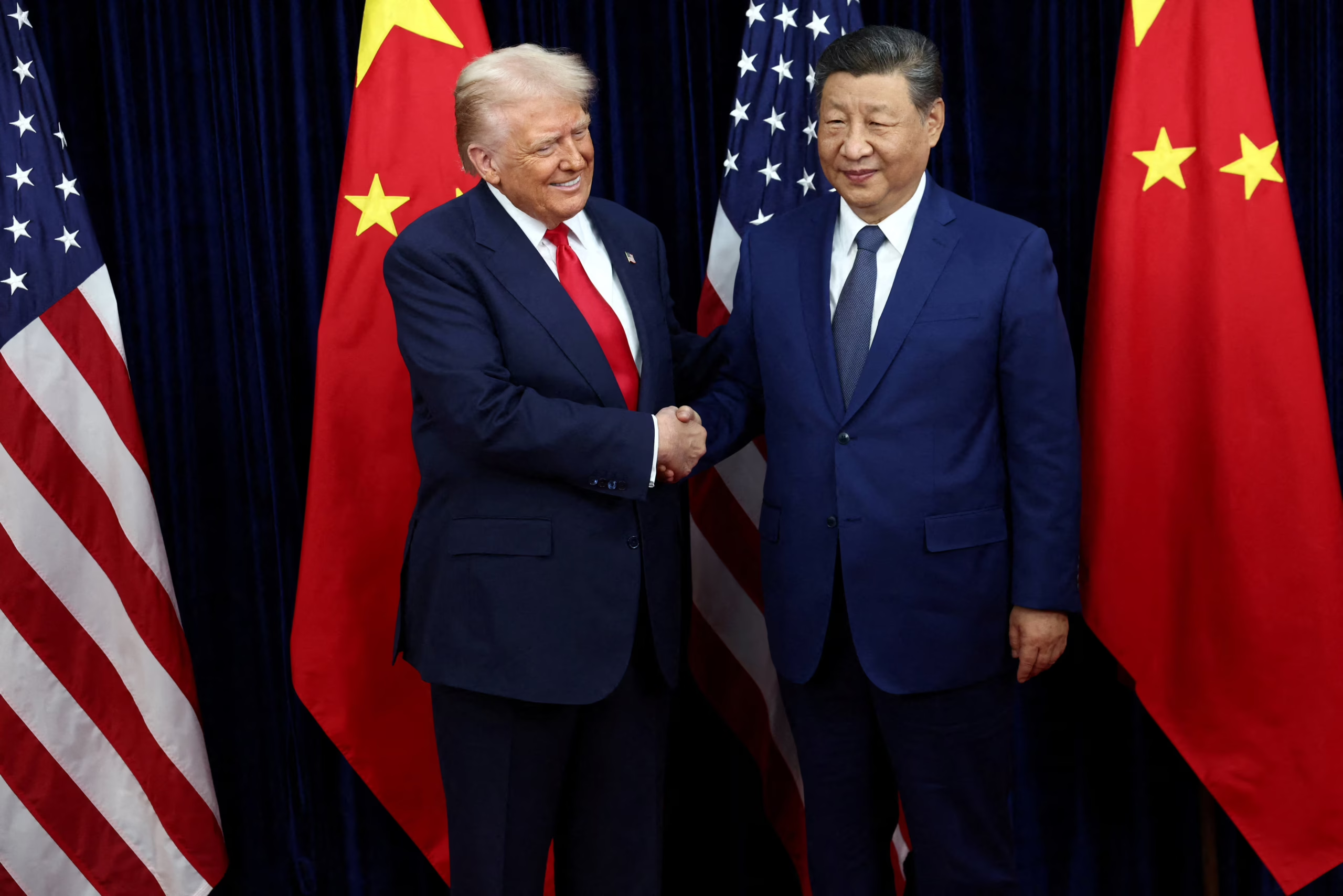Busan, South Korea | October 30, 2025 — In a landmark diplomatic development, former U.S. President Donald Trump and Chinese President Xi Jinping met face-to-face after six years, signaling a major thaw in trade tensions between the world’s two largest economies.
Trump described the meeting as “amazing” and rated it “12 out of 10”, saying both sides reached a “fantastic understanding” on several long-pending trade and technology issues.
Tariff Relief and Economic Signals
Following the talks, Trump announced an immediate 10% reduction in tariffs on Chinese imports, including goods previously taxed under the 2020 trade war. The cut brings average tariffs on Chinese products down from 57% to around 47%, providing relief to global supply chains and importers.
The two leaders also finalized a one-year cooperation framework covering key industrial and energy sectors. Trump emphasized that the move aims to “bring balance, not pressure” to U.S.–China trade.
Rare Earths Dispute ‘Settled’
A significant breakthrough came when Trump confirmed that the rare earth minerals issue has been settled. China, the world’s dominant supplier of rare earth elements crucial for electronics, defense systems, and renewable energy, reportedly agreed to ensure “uninterrupted and fair supply” to global markets.
“This agreement ensures stability for American manufacturers and energy developers,” Trump stated, calling it a “strategic win for both nations.”
Xi Jinping, in his remarks, said that cooperation in rare earth trade will “benefit the global economy and encourage mutual trust.”
Focus on Fentanyl, Technology & Trade
Apart from rare earths, the leaders also discussed curbing the export of fentanyl precursors from China — a major source of the U.S. opioid crisis. In return, Trump reduced fentanyl-related tariffs from 20% to 10%.
The summit also touched on:
- The TikTok operational structure in the U.S.
- Semiconductor and chip supply chain cooperation
- Agricultural trade, including a potential U.S. soybean purchase program
- Technology exports and AI regulation frameworks
Both sides are expected to finalize detailed memorandums over the coming months.
No Discussion on Taiwan, Cooperation on Ukraine
While Trump avoided commenting on the Taiwan issue, he confirmed that the leaders agreed to “maintain communication channels” on global security matters. The two also pledged to coordinate diplomatic efforts regarding the Russia–Ukraine conflict and Middle East peace talks.
Looking Ahead
The meeting lasted approximately one hour and forty minutes, marking the most direct communication between the U.S. and China since 2019.
Trump announced plans to visit Beijing in April 2026 to “build on the momentum” from the Busan summit, describing his rapport with Xi as “very strong and mutually respectful.”
Markets worldwide reacted positively, with Asian and U.S. stock indices showing a brief surge following reports of tariff cuts. Analysts suggest the development could stabilize global trade and reduce inflationary pressures caused by the prolonged tariff regime.
Global Reaction
World leaders and trade experts welcomed the de-escalation.
- Japan called it a “positive sign for regional stability.”
- The European Union expressed hope for “more predictable and transparent trade relations.”
- India emphasized the importance of maintaining fair competition in the rare earth market.
Summary
| Key Outcome | Detail |
|---|---|
| Tariff Reduction | U.S. cuts China tariffs by 10% |
| Rare Earths Deal | China to ensure stable global supply |
| Fentanyl Tariff Cut | Reduced from 20% to 10% |
| Duration of Meeting | 1 hour 40 minutes |
| Next Step | Trump to visit China in April 2026 |
Conclusion
The Trump-Xi meeting represents a pivotal moment in post-pandemic geopolitics, easing trade tensions and signaling a cautious reset in U.S.–China relations. While the path ahead remains uncertain, both leaders have opened a diplomatic window that could reshape global trade dynamics for years to come.
Source Attribution: Verified live updates and reports from NDTV, Reuters, Livemint, The Economic Times, Moneycontrol, and Al Jazeera were compiled and revised (October 2025).










